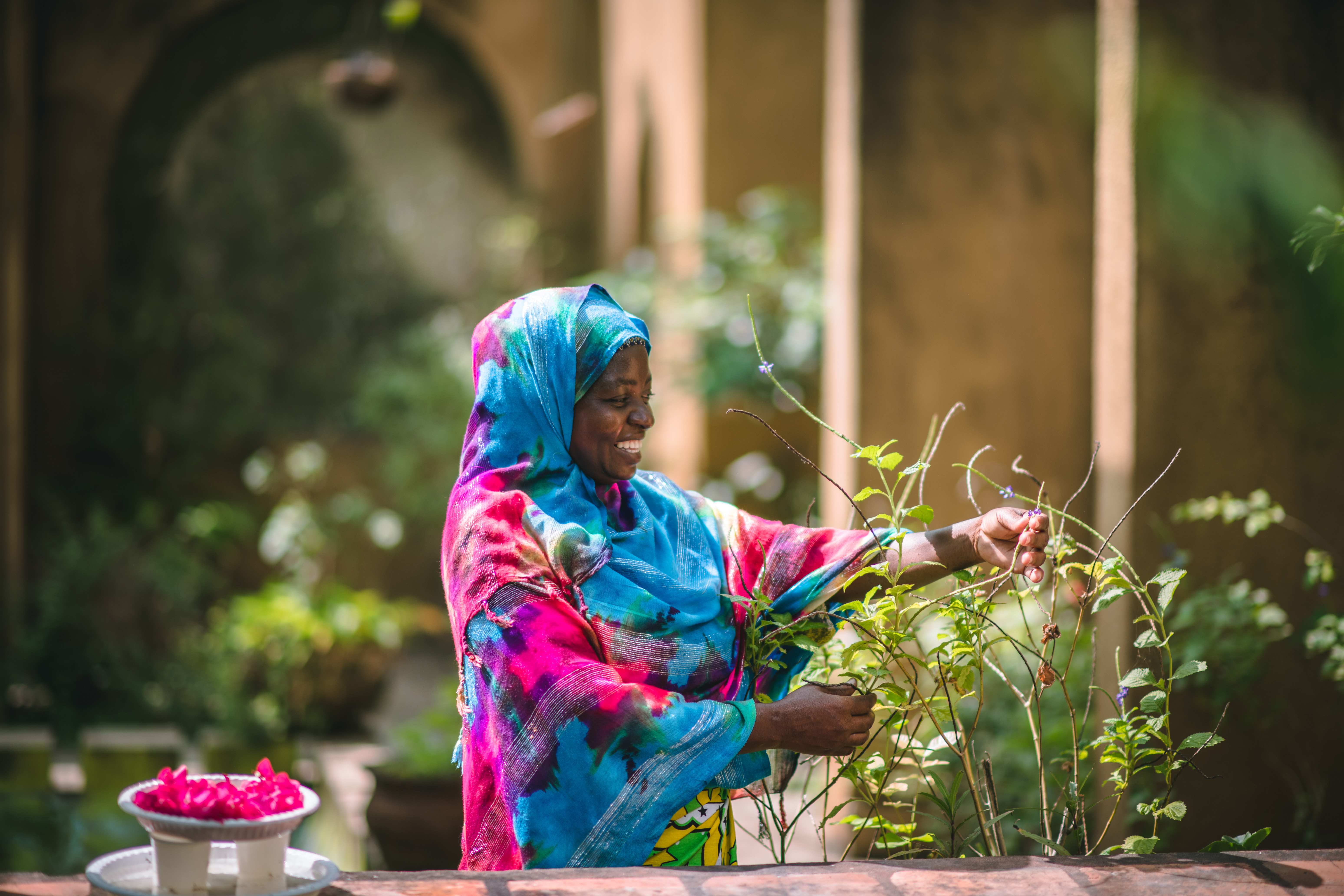Mwaka Juma, a butterfly farmer at the Kipepeo butterfly sanctuary in malindi, Kenya 2018.
BES-Net First Kenya National Trialogue: Attaining Land Degradation Neutrality (LDN) Targets and Pollinator Conservation for Food Security
Thank you Pippa Heylings and great to have you facilitate today’s national Trialogue
Thank you Mercy Gichora, KEFRI, for the excellent presentation to set the context for us
The Principle Secretary, Ministry of Environment and Forestry, Dr. Chris Kiptoo,
The Director of Multilateral Environmental Agreements, Dr. Cyrus Mageria,
My colleague Anne Juepner, Director of the UNDP Global Policy Center for Ecosystem Resilience and Development
Representatives of the scientific, practice, and policy communities as well as other partners present,
Distinguished Delegates, Ladies and Gentlemen
It gives me great pleasure to join you this morning, as we continue the journey of exploring the nexus between land degradation, pollinators, and food security at the national level. We began walking this path together at the Anglophone Africa Regional Trialogue in 2019, where representatives of science, policy and practice came together to discuss issues and opportunities related to the aforementioned topics and chart a way forward towards a more sustainable future for the region.
Today’s forum is the first national trialogue for Kenya, hosted by the Ministry of Environment and Forestry (Government of Kenya) with support from United Nations Development Programme (UNDP). It has brought together policymakers, scientists, traditional knowledge holders and practitioners from across the country. On behalf of UNDP, I take this opportunity to welcome all the delegates.
This Trialogue affords all of us an opportunity to share the latest knowledge on the current situation, including economic impacts and drivers, of land degradation and pollinators’ decline in the country and how they affect biodiversity.
There has been greater awareness of land degradation issues, and a growing commitment to manage the land sustainably in the interest of current and future generations while building resilience to climate shocks. I would like to thank the Government of Kenya for its continuous leadership on this topic along with the dedication to set ambitious goals, as demonstrated by the recently published Land Degradation Neutrality Targets.
With regard to preserving pollinators, there is also need for more collaborative effort, as more than 75% of the world’s food crops depend on pollination to some extent, with a total value affected amounting to 500 billion USD annually. As the pollinator species, including bees, butterflies, bats and hummingbirds, are increasingly under threat from anthropogenic activities, we must make a concerted effort to develop a better understanding of pollination services and include this critical component into ongoing and future sustainable land management practices.
As we dive deeper into presentations and discussions, we need to keep in mind the importance of the whole-of-society approach to climate action (SDG 13) in Kenya given the complexity of the issues intensified by the recurring climate crises and to ensure that this becomes a reality as Kenya moves to implement its COVID-19 Economic Recovery Strategy and yjr vpimytu level Socio-economic Re-engineering and Recovery Strategy. The First Kenya National Trialogue is a platform that facilitates greater collaboration between communities of policy, science and practice to address the pressing issues and design solutions in a joint and inclusive manner, adhering to the principle of leaving no one behind.
UNDP looks forward to learning from your discussions, decisions and recommendations on locally appropriate policy and programmatic options to improve and strengthen key interactions between land degradation neutrality, promotion of pollinators and food security. We stand ready to support you in the implementation of your action agenda as a cornerstone to achieve broader sustainable development pathways on a local and national level.
Distinguished Delegates, Ladies and Gentlemen
As I conclude I would like to acknowledge the German Federal Ministry of the Environment, Nature Conservation and Nuclear Safety (BMU) for the financial support that has enabled this forum to happen. I also want to acknowledge the partnership and fruitful collaboration with the Ministry of Environment and Forestry and the UNDP GPC here in Kenya in making this event possible.
I thank you for your attention and wish you a very productive and successful National Trialogue.

 Locations
Locations
